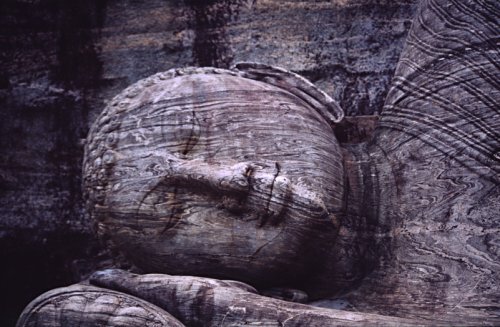The Story of Ananda, the Rich Man
Verse 62: “I have sons, I have wealth”; with this (feeling of attachment) the fool is afflicted. Indeed, he himself is not his own, how can sons and wealth be his?
1. putta: sons also means both son and daughter.
The Story of Ananda, the Rich Man
While residing at the Jetavana monastery, the Buddha uttered Verse (62) of this book, with reference to a miserly rich man, named Ananda.
There was once a very wealthy man named Ananda in Savatthi. Although he possessed eighty crores, he was very reluctant to give anything in charity. To his son, Mulasiri, he used to say, “Don’t think the wealth we have now is very much. Do not give away anything from what you have, for you must make it grow. Otherwise your wealth will dwindle away.” This rich man had five pots of gold buried in his house and he died without revealing their location to his son.
Ananda, the rich man, was reborn in a village of beggars, not far from Savatthi. From the time his mother was pregnant, the income of the beggars decreased; the villagers thought there must be a wicked and unlucky one amongst them. By dividing themselves up into groups and by the process of elimination, they came to the conclusion that the pregnant beggar woman must be the unfortunate one. Thus, she was driven out of the village. When her son was born, the son proved to be extremely ugly and repulsive. If she went out begging by herself, she would get as before, but if she went out with her son she would get nothing. So, when the boy could go out by himself, his mother placed a plate in his hand and left him. As he wandered about in Savatthi, he remembered his old house and his past existence. So he went into the house. When the sons of his son Mulasiri saw him, they were frightened by his ugly looks and began to cry. The servants then beat him and threw him out of the house.
The Buddha who was on his alms-round saw the incident and asked the Venerable Ananda to fetch Mulasiri. When Mulasiri came, the Buddha told him that the young beggar was his own father in his previous existence. But Mulasiri could not believe it. So, the Buddha directed the beggar boy to show where he had buried his five pots of gold. Then only, Mulasiri accepted the truth and from that time he became a devoted lay-disciple of the Buddha.
Then the Buddha spoke in verse as follows:
Verse 62: “I have sons, I have wealth”; with this (feeling of attachment) the fool is afflicted. Indeed, he himself is not his own, how can sons and wealth be his?
Dhammapada Verse 62
Anandasetthi Vatthu
Putta1 ma’tthi dhanam ma’ tthi
iti balo vihannati
atta hi attano natthi
kuto putta kuto dhanam.
Source: Tipitaka


















